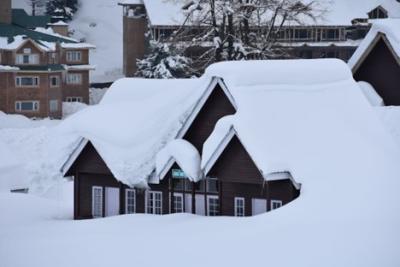A New Tool to Incorporate Climate Impacts on Building Energy Demand
A new tool named 'helios' improves projections of energy demand for heating and cooling in buildings, a critical aspect as the climate shifts. By leveraging climate data, helios provides precise calculations of energy needs across various regions and over time. Helios bridges the gap between high resolution data and global scale models by facilitating the workflow in estimating population-weighted heating and cooling degrees.
We've developed 'helios,' an innovative tool for predicting building energy needs for heating and cooling, factoring in detailed climate data and population density. This user-friendly tool is the first of its kind, designed to aid researchers in anticipating energy demand shifts due to changing weather patterns. 'Helios' has the potential to inform urban planning and environmental policy, contributing to a more sustainable future by enabling better energy demand management.
We introduce helios, an open-source R package designed to estimate population-weighted heating and cooling degree-hours (HDH and CDH) and degree-days (HDD and CDD) across various temporal and spatial scales. This tool is critical for informing electricity demand load in the Global Change Analysis Model (GCAM) and its U.S. state-level detailed counterpart, GCAM-USA. Helios streamlines the workflow from processing raw climate data to outputting results in formats suitable for GCAM, utilizing high-resolution climate data from models such as WRF and the CMIP6 archive. The package simplifies the handling of complex climate data, ensuring quality control through performance diagnostics and facilitating the calculation of heating and cooling degrees with a standardized methodology. The development of helios addresses the need for integrating high-resolution data into global scale models, thereby enhancing the understanding of how spatial and temporal temperature variability impacts building energy demands.

